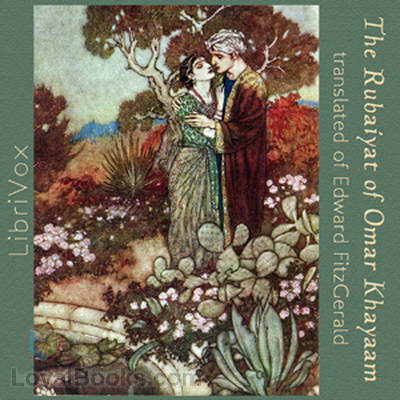
By: Omar Khayyam (1048-1131)
"The Rubaiyat of Omar Khayyám" is a collection of verses that discuss the topics of life, love, and mortality, all with a sense of contemplation and reflection. The poetry is beautifully translated by Whinfield, capturing the essence and emotion of the original work. The language is rich and lyrical, drawing the reader into a world of deep thought and philosophical musings. Khayyám's words have a timeless quality, resonating with readers of all backgrounds and beliefs. This edition is a must-read for anyone interested in poetry, philosophy, or simply the human experience. Highly recommended for those seeking a profound and thought-provoking read.Book Description:
Omar Khayyám (1048–1131) was a Persian poet, mathematician and astronomer. In the Western world he is most famous for his many rubáiyát (quatrains), a four line rhyming stanza, which were popularized in an extensively reworked collection in English by Edward Fitzgerald, the first edition of which appeared in 1859. However, Fitzgerald was neither the first nor the most scholarly of the translators of Omar Khayyam’s rubáiyát. As well as translating the poems of Hafez and Rumi, Edward Henry Whinfield (1836-1922) also produced a much more extensive English version of the rubáiyát. In 1883 he published a bilingual edition of 500 quatrains, in which the Persian original is presented side by side with the English translation. This is a bilingual recording. Each quatrain will be read first in Persian and then in English translation. While listeners unfamiliar with the Persian language will not able to appreciate the meaning of the quatrains in their original form, everyone can at least enjoy the musicality of Omar’s verse, which Whinfield often succeeds in capturing.
|
